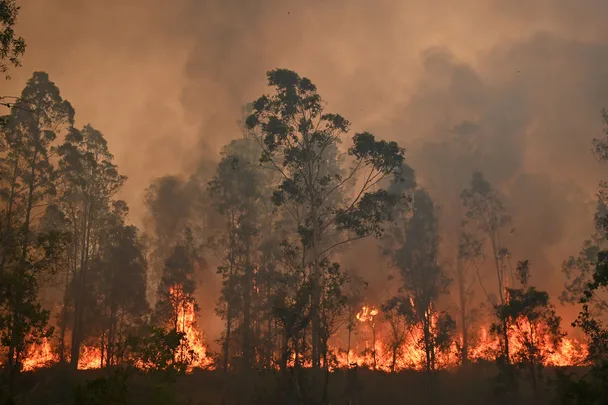Around the country, unprecedented bushfires are raging. As fires tear across Australia, treasured homes and precious ecosystems have been turned into furious infernos in scenes that can only be described as hell on earth.
In their wake, the fires leave trails of mass destruction and heartbreak, creating damage that will take years to repair. Or, in the case of a lost life – a sudden, infinite void.
WATCH BELOW: Bushfire Victims See Their Burnt-Down Home For The First Time
For years, climate scientists have emphasised the impact of climate change on Australia’s bushfire risk with many saying the evidence connecting greenhouse emissions to our heightened state of fire risk is irrefutable.
“To get a fire that’s worthy of firefighting, you need three things – a spark, something to burn (that’s the fuel), and the right weather on the day,” explains Professor of Biology at Macquarie University and Councillor with the Climate Council of Australia, Lesley Hughes.
“Climate change has an impact on all of those things. In terms of fuel – in the drought where the fuel is very, very dry – dry vegetation is much more flammable than wet vegetation. Climate change affects dryness causing heat and reduced rainfall over extended periods of time, and more dry, much more flammable fuel.”
“But on any day, the most important thing is the weather. You have a much higher risk of a dangerous bushfire if the weather is low in humidity, windy, and hot. Now, with climate change, everything is getting hotter on average and we’re getting more extreme hot days.”
“It’s a complex relationship but it’s also quite a logical relationship – at least it’s logical to most people,” says Hughes.
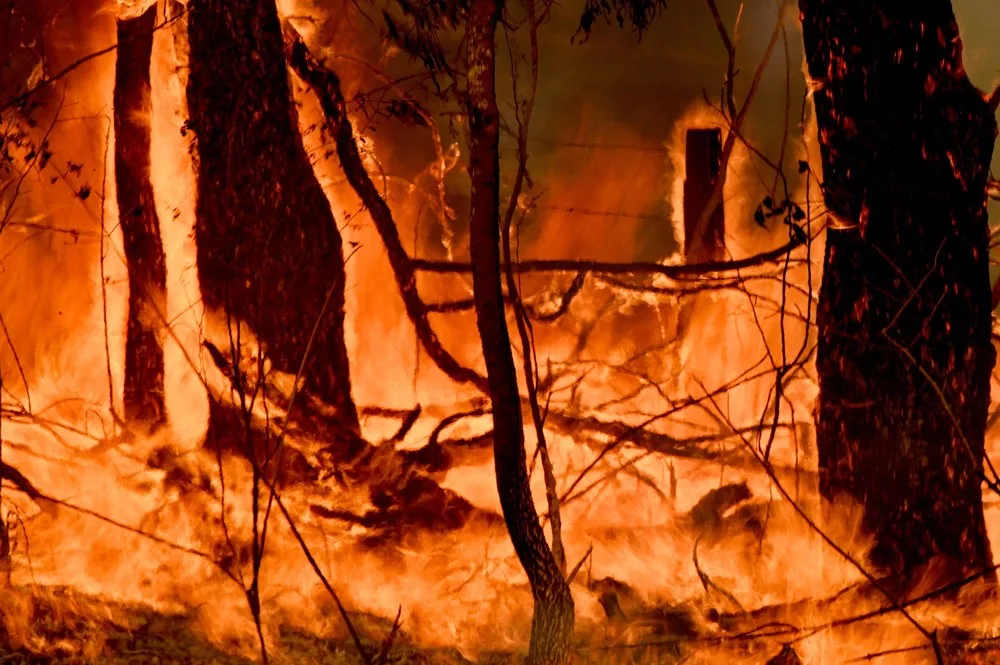
So, why are we still fighting about this?
Because our federal government remains steadfast in its view there is no link between climate change and bushfires.
At the centre of the debate is Deputy Prime Minister and Nationals Party leader Michael McCormack who on Monday lashed out, labelling the connection between climate change and the bushfires as “the ravings of some pure, enlightened and woke capital city greenies,” on ABC Radio National.
After hurriedly admitting that 2019’s bushfire season had begun a “tad early,” McCormack was quick to move the discussion along so that he could inform listeners: “We’ve had fires in Australia since time began.”
But, the bushfires of now are nothing like those of previous decades.
“Fire seasons are gradually lengthening so we’re getting really severe bushfires at times of the years where in the past we haven’t had out-of-control bushfires,” says Hughes.
We’ve also reached a point where environments that previously did not burn are igniting into flames, destroying natural habitats and threatening the existence of some species of native flora and fauna.
“Fires are burning into areas that have probably never had fires before such as Queensland’s subtropical rainforest. Rainforests are not usually flammable because they tend to be wet, humid and the fuel is just not very flammable. But, rainforests are also suffering from droughts, and getting dry enough to burn in this really hot weather.”
“As an example, in Tasmania in January 2016, we had fires burning into World Heritage areas killing thousand-year-old trees that have never had fires before. Those trees are not adapted to fire so the fact that they’d been killed by fire is evidence they haven’t had fire in the last thousand years.”
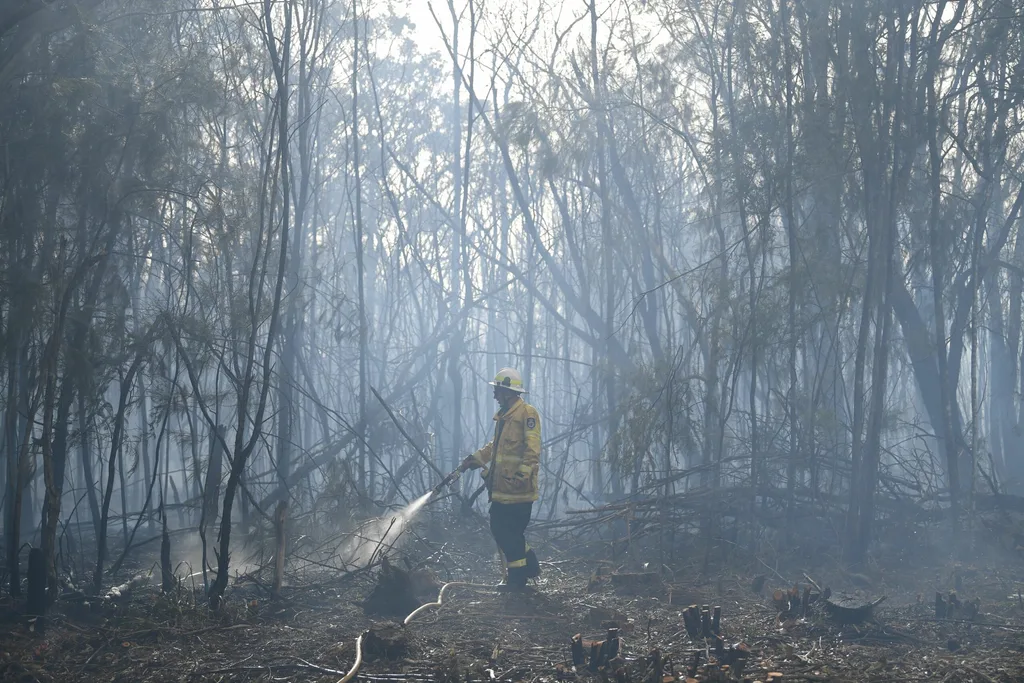
So what are our federal pollies doing about it? Not a lot, it seems.
NSW Deputy Premier John Barilaro is another politician who has deflected from the issue and said now is not the time to talk about climate change:
“For any bloody greenie, lefty out there that wants to talk about climate change when communities are at risk — and over the next 48 hours we may lose more lives — and if this is the time that people talk about climate change they are a bloody disgrace,” he said, according to the ABC.
Meanwhile, Prime Minister Scott Morrison has ignored communications from former NSW Fire and Rescue Commissioner Greg Mullins and 22 other ex-chiefs who have formed the Emergency Leaders for Climate Action. These heavyweight emergency services leaders have been requesting an urgent meeting with the Prime Minister regarding Australia’s catastrophic conditions since April.
Instead of moving to enact solid climate change policy, ScoMo has offered his “thoughts and prayers” to those impacted by the bushfires.
But, bushfire victims need much more than the thoughts and prayers of the Prime Minister.
“There’s been coalition politicians saying ‘we can’t talk about climate change now’ but the problem is they don’t want to talk about it at any time – whether there’s a bushfire or not. There’s actually bushfire victims and people in bushfire-prone areas saying ‘we should be talking about climate all the time’.”
Hughes warns that denying the link between climate change and bushfires leaves us vulnerable in the face of heightened bushfire risk.
“A problem with denying the impact of climate change on bushfires is you then do not acknowledge that things will get worse. If you don’t acknowledge things will get worse, you’re not putting in inadequate resources to prepare. That’s the practical consequence of this denial.”
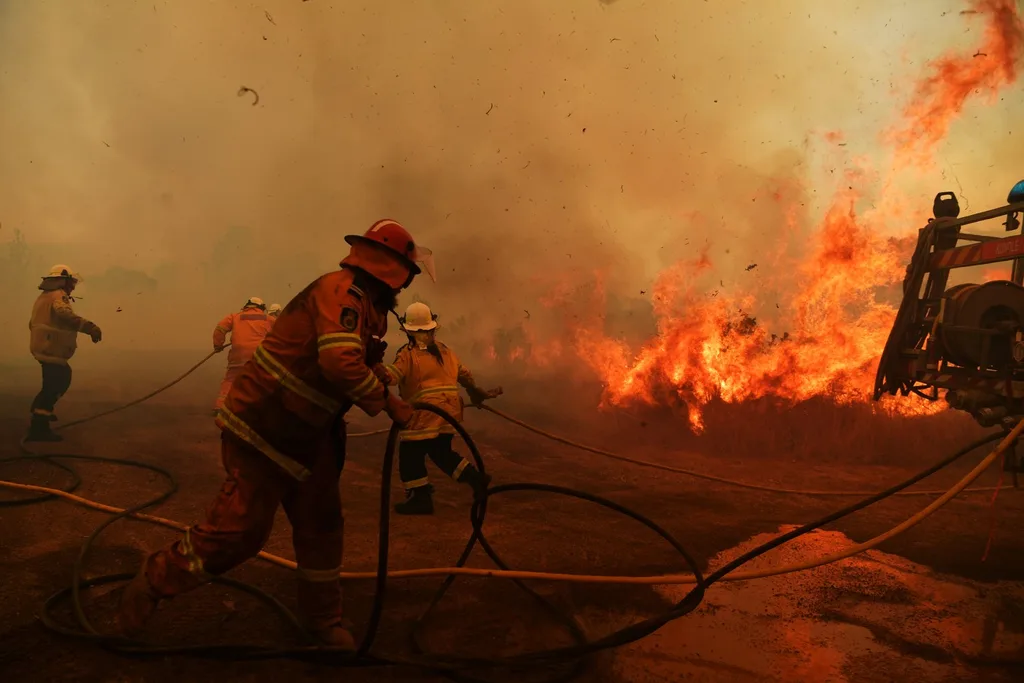
“Our emergency services and scientists have been saying this for decades. They need to be adequately resourced for an increased risk. If you deny that link then you also deny greater resources and that’s the problem we’re seeing at the moment – the inadequacy of our fire fighting resources,” Hughes continues.
“That’s not a criticism of our firefighters, they’re doing an amazing job. But, there needs to be more personnel, we need to have spent more money on waterbombing aircraft and fire trucks. That has to come from the government and while they keep saying there’s no link between climate change and bushfires, they won’t spend that money.”
Unless we rapidly and substantially reduce greenhouse gas emissions, scientists predict that extreme fire weather will continue to become more frequent, according to a report released by the Climate Council.
If we don’t act quickly, our current conditions may just be a preview of what’s to come.
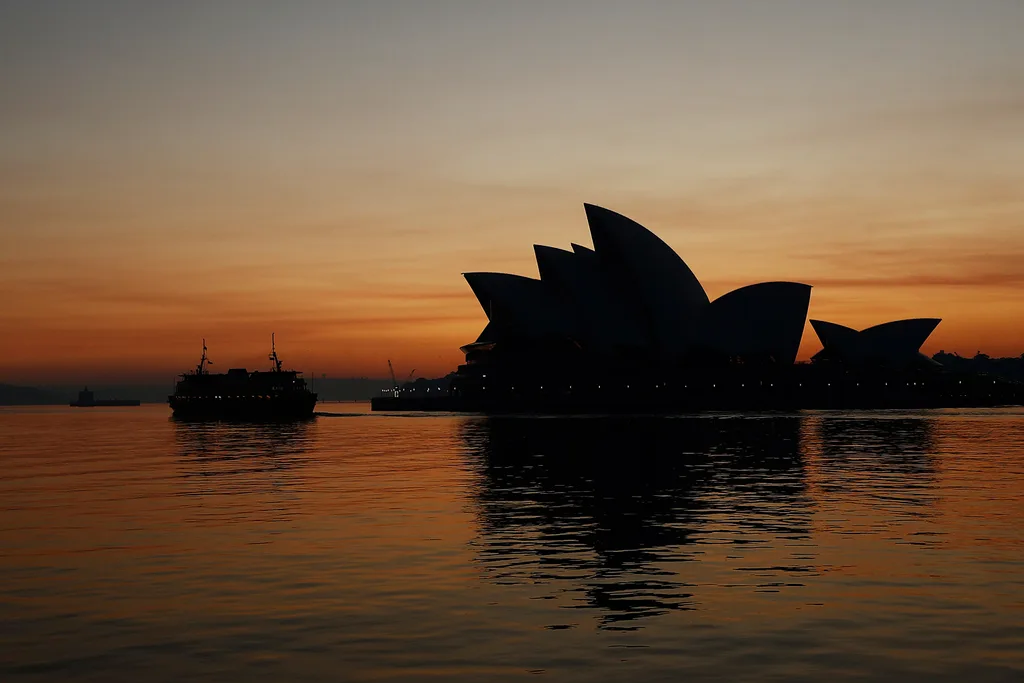
Around the country, unprecedented bushfires are raging. As fires tear across Australia, treasured homes and precious ecosystems have been turned into furious infernos in scenes that can only be described as hell on earth.
In their wake, the fires leave trails of mass destruction and heartbreak, creating damage that will take years to repair. Or, in the case of a lost life – a sudden, infinite void.
WATCH BELOW: Bushfire Victims See Their Burnt-Down Home For The First Time
Around the country, unprecedented bushfires are raging. As fires tear across Australia, treasured homes and precious ecosystems have been turned into furious infernos in scenes that can only be described as hell on earth.
In their wake, the fires leave trails of mass destruction and heartbreak, creating damage that will take years to repair. Or, in the case of a lost life – a sudden, infinite void.
WATCH BELOW: Bushfire Victims See Their Burnt-Down Home For The First Time
